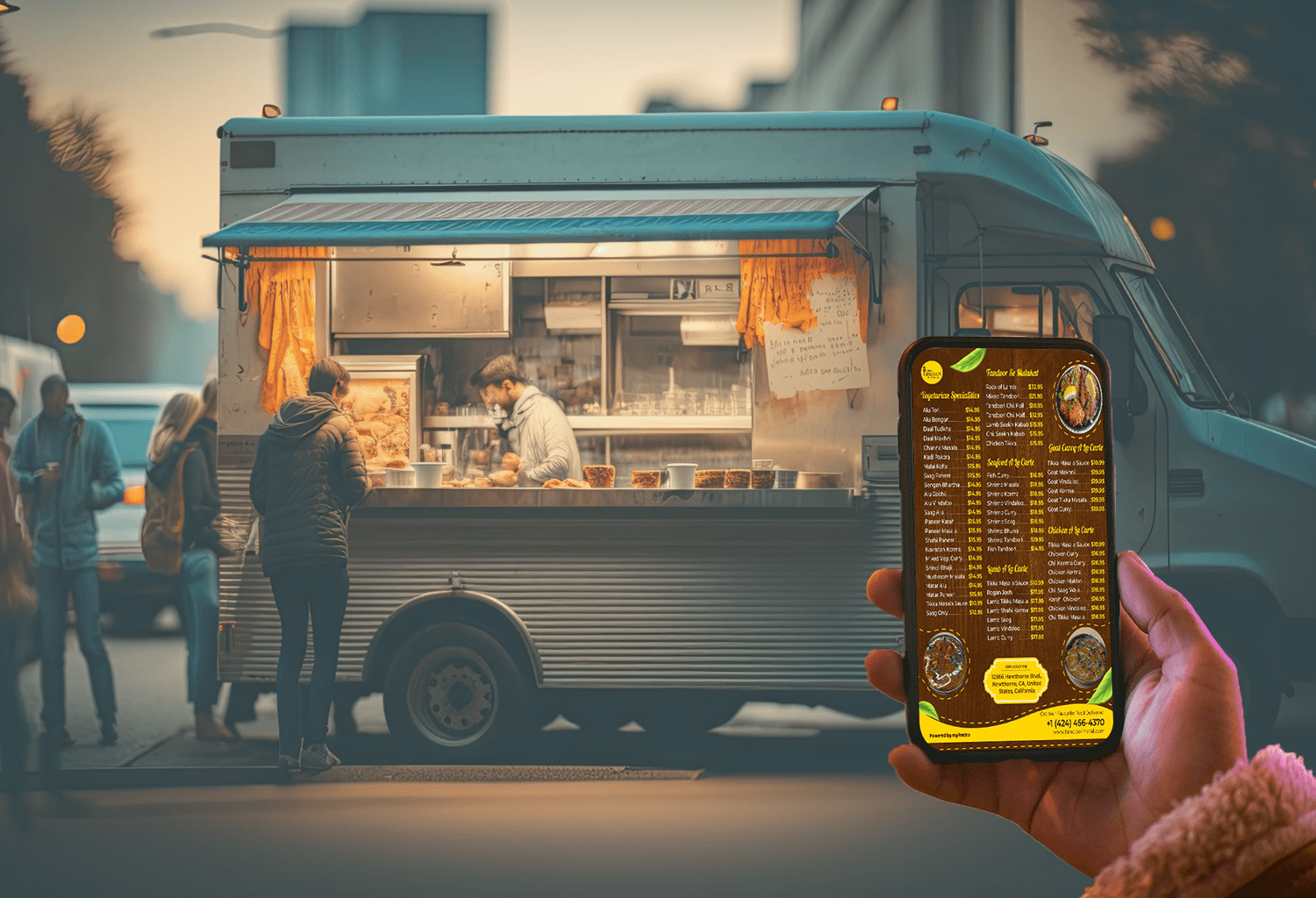The vibrant world of food trucks has captured the imagination of aspiring restaurateurs and hungry customers alike. These rolling kitchens offer a unique blend of delicious food, entrepreneurial spirit, and community connection. But what exactly makes a food truck successful? Buckle up, because we’re going to explore the heart of the Food Truck Business, revealing the secrets that turn mobile meals into a booming business.
Why Food Trucks Rule?
Food trucks offer several compelling advantages over traditional brick-and-mortar restaurants, making them an attractive proposition for aspiring restaurateurs:
Low Overhead Costs: Compared to a fixed location, a food truck requires a significantly smaller initial investment. This makes it a more accessible option for those starting fresh in the restaurant industry.
Location Flexibility: Unlike a stationary restaurant, food trucks can adapt to changing customer demographics and events. This allows you to follow the crowds and cater to high-traffic areas, maximizing your exposure and potential customer base.
Menu Creativity: Food trucks are often seen as developers for culinary innovation. The smaller kitchen space encourages a focus on specific menus and allows for quicker experimentation with new dishes and flavor profiles.
Essential Permits and Licenses
Before hitting the road, ensure you have the necessary permits and licenses to operate legally. These requirements can vary depending on your location, so it’s crucial to research your local regulations. Here’s a general checklist to get you started (remember, consult your local authorities for specific requirements):
- Business License: This is the foundation of your legal operation and allows you to conduct business in your area.
- Food Service Permit: This permit ensures your food preparation and handling practices meet safety standards.
- Mobile Food Vending Permit: This specific permit allows you to operate a food truck in your designated locations.
- Health Department Inspection: Your food truck will need to pass a health inspection to ensure proper sanitation and food handling procedures.
- Additional Permits: Depending on your location, you might need additional permits for things like music playing, generator use, or sidewalk vending.
Don’t Miss Out! The Fast Food Revolution is Here
Menu Creation
Your menu is the heart and soul of your food truck. It’s what attracts customers and keeps them coming back for more. When crafting your food truck menu, consider these key factors:
- Focus on Flavor: Food trucks are known for their bold and innovative dishes. Experiment with unique flavor combinations and high-quality ingredients to make your offerings stand out.
- Keep it Concise: Due to limited space, food truck menus need to be streamlined. Offer a focused selection of dishes you can execute perfectly, ensuring consistency and efficiency.
- Cater to Dietary Needs: With growing awareness of dietary restrictions, consider offering gluten-free, vegetarian, and vegan options to attract a wider customer base.
- Price it Right: Food trucks are often associated with affordability. Conduct market research to determine competitive pricing for your dishes while ensuring profitability.
Market and Reach the Digital Foodie
In today’s digital age, a strong online presence is essential for any food truck. Here are some ways to make your food truck a social media sensation:
- Captivating Content: Use high-quality photos and videos showcasing your mouth watering dishes and vibrant truck design.
- Social Media Savvy: Maintain active profiles on platforms like Instagram, Facebook, and Twitter. Announce your location, promote special offers, and engage with customers.
- Location-Based Marketing: Utilize apps and platforms that allow customers to track your location and plan their visit.
- Collaborations: Partner with local businesses or influencers to expand your reach and attract new customers.
Managing Food Truck Kitchen
Running a successful food truck requires exceptional organization and resourcefulness. Here are some tips for smooth sailing in your mobile kitchen:
Prep is Key: Pre-chop vegetables, marinate meats, and prepare sauces beforehand to ensure efficient service during peak hours.
Smart Storage: Utilize space-saving storage solutions to optimize your limited work area.
Portable Power: Invest in a reliable power source or generator to ensure your equipment runs smoothly throughout the day.
Waste Management: Develop a system for efficient waste disposal, keeping your truck clean and sanitary.
Teamwork Makes the Dream Work: If you have employees, foster a collaborative environment that prioritizes cleanliness, food safety, and excellent customer service.
Recipe for Success of Your Food Truck
The food truck industry continues to boom, offering a dynamic and rewarding environment for passionate entrepreneurs. By understanding the advantages (low overhead costs, location flexibility, menu creativity), exploring the legalities (essential permits and licenses), creating a delicious menu (mouthwatering offerings, cater to dietary needs), embracing digital marketing (social media savvy, location-based marketing), and mastering mobile kitchen management (efficient prep, smart storage, portable power), you can turn your food truck into a thriving mobile restaurant.
So, are you ready to join the Mobile Kitchen Fiesta? With dedication, delicious food, and a strategic approach, you can carve your niche in the exciting world of mobile cuisine. Remember, myRestro, an all-in-one restaurant management system, can be your key asset for success. Explore myRestro’s features to discover how we can streamline your operations, boost efficiency, and help you explore the exciting world of food truck management.










0 Comments